

Valgerður Valur Hirst Baldurs
images:
Elías Rúni
@eliasruni
Kaupa verk eftir Elías Rúna
Over the past few years queer education for young people has become a mainstay in schools. This is an extremely important factor to encourage equality and tolerance to those who do not fall into society’s designated norms. But why is queer education only taught to teenagers? Younger children understand more than we realise, and it is no less important that we continue to learn as we grow and mature. Why is it not compulsory for those people who aim to work with a large and diverse group of people to learn the basics of queer education and the general teachings of equality?
There are two systems that queer people, like everyone, must frequently interact with: the educative system and healthcare. I would like to centre these two systems and the study programs included within them in this article, as it has long been requested that queer education be made compulsory in these sectors.
It is important that professionals are aware of diversity in society and that they use correct and appropriate terminology that does not assume that all people are heterosexual and cisgender. But what effects does it have when educators and healthcare staff take into account sexuality, gender identity or sexual characteristics of queer people?
During the academic year 2016–2017 the Queer Association of Iceland (Samtökin ’78) distributed a survey on the wellbeing of queer students in schools. The survey showed that around a third of queer students felt unsafe at school due to their sexuality. The survey also showed the effect that teachers and staff at school had on the experiences and wellbeing of students.
When pupils were asked about the number of staff who were supportive of the queer community, an overwhelming majority, 97%, could name at least one member of staff at their school. Of those, 82% believed that more than six staff members were supportive of the queer community. Those queer students who felt a sense of support and positivity from teachers and staff towards the queer community were among other things, likelier to feel a sense of belonging towards the school community and were less likely to miss school due to feeling unsafe and distressed.
Unfortunately, not all participants felt a sense of support, as around 3% said that there were no members of staff at their school that were supportive to the queer community. Furthermore, 28% of participants said that they had at some point heard prejudiced remarks towards queer people from staff, 45.8% said that staff never intervene in case of hearing prejudiced remarks made within earshot and 43.6% of participants said that they never reported harassment or violence experienced at school.
Where supportive staff members numbered fewer than 10 and where staff did not intervene in cases of homophobic comments, pupils were much more likely to miss school due to feeling unsafe.
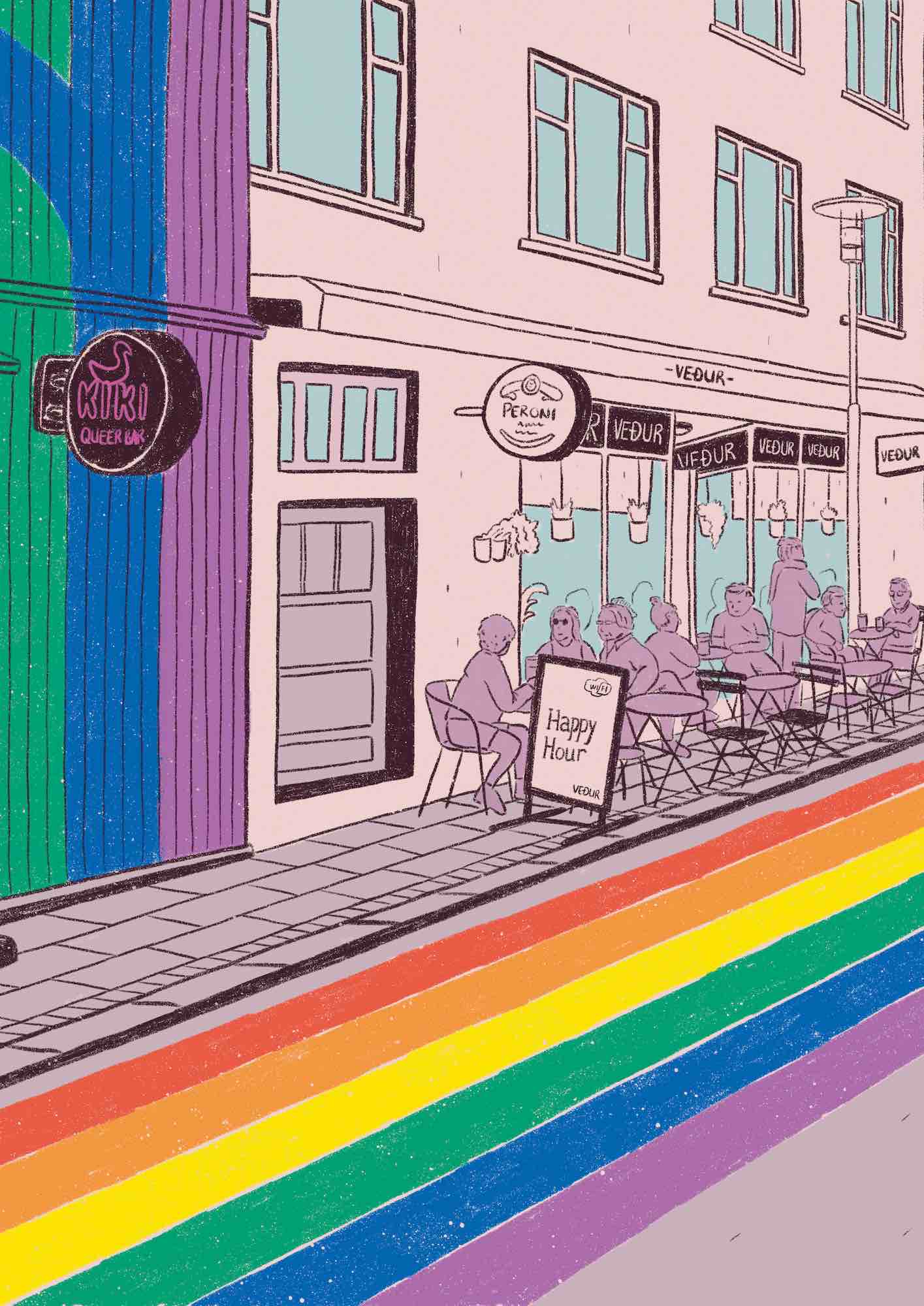

[The drawing above, Gleðigatan by Elías Rúni, is available in print here at Uppskera listamarkaður.]
No formal surveys have been carried out regarding the experiences of queer people within the healthcare system, but it would be pertinent to examine. However, various stories circulate about inappropriate comments and uncomfortable interactions had with healthcare staff. There have been large legal strides made in the healthcare system with regards to the interests of trans and intersex individuals. Laws regarding gender self-determination were finally passed in June 2019 and provisions about the safeguarding and protection of intersex children were added in December 2020.
These are great and important steps towards a more just society but although the legal groundwork has been established, so too must the education of healthcare staff take on the matters of equality and diversity. Within the healthcare sector it is most often assumed that individuals are heterosexual, cisgender and dyadic (non-intersex). This manner of thinking has often put patients and healthcare providers in difficult positions.
People in same-sex relationships must repeatedly explain themselves to professionals, stories exist of trans individuals having to spend their doctor’s appointments educating professionals of their experiences, men who have sex with men are still barred from giving blood and recently a psychologist submitted an article to an Icelandic publication which was filled with falsehoods and outdated teachings about trans people.
The demeanour of professionals towards minority groups has a direct effect on how the people within those groups experience services. Negative experiences of the system keep people away and that can have serious consequences for their health and wellbeing.
It is therefore extremely important that staff who work in the healthcare sector, in schools and in general proximity to people, be well educated on queer matters and that they show support through their work. Many students in the faculties of health sciences and educative sciences concern themselves with and try to research information themselves when their study materials are lacking and continue to speak for the notion of making queer and equality education a compulsory subject.
Nevertheless, there has been somewhat of an increase in the optional modules that examine minority groups and diversity, which is extremely positive to see, and hopefully these developments will continue and eventually lend themselves to the formation of compulsory modules.
— — —
Valgerður Valur Hirst Baldurs, president of Q – Queer Student Association
queer@queer.is
www.facebook.com/Qfelag
Do you support Vía?
Vía counts on your support. By subscribing to Vía you contribute to the future of a medium that specializes in, and puts emphasis on equality and diversity.
Vía, formerly known as Flóra, was founded 4 years ago for critical readers that want to dive underneath the superficial layer of social discussion and see it from an equality, inclusion, and diversity perspective.
From the beginning, Vía has covered urgent societal topics and published issues and articles that have shone a light on inequality, prejudice, and violence that exist in all layers of society.
We emphasize publishing stories from people with lived experiences of marginalization.
Every contribution, big and small, enables us to continually produce content aimed to educate and shine a light on hidden inequalities in society, and is essential for our continuing work.
Support Vía
MSN lán fyrir öll, líka þau sem vinna


My Right to Exist
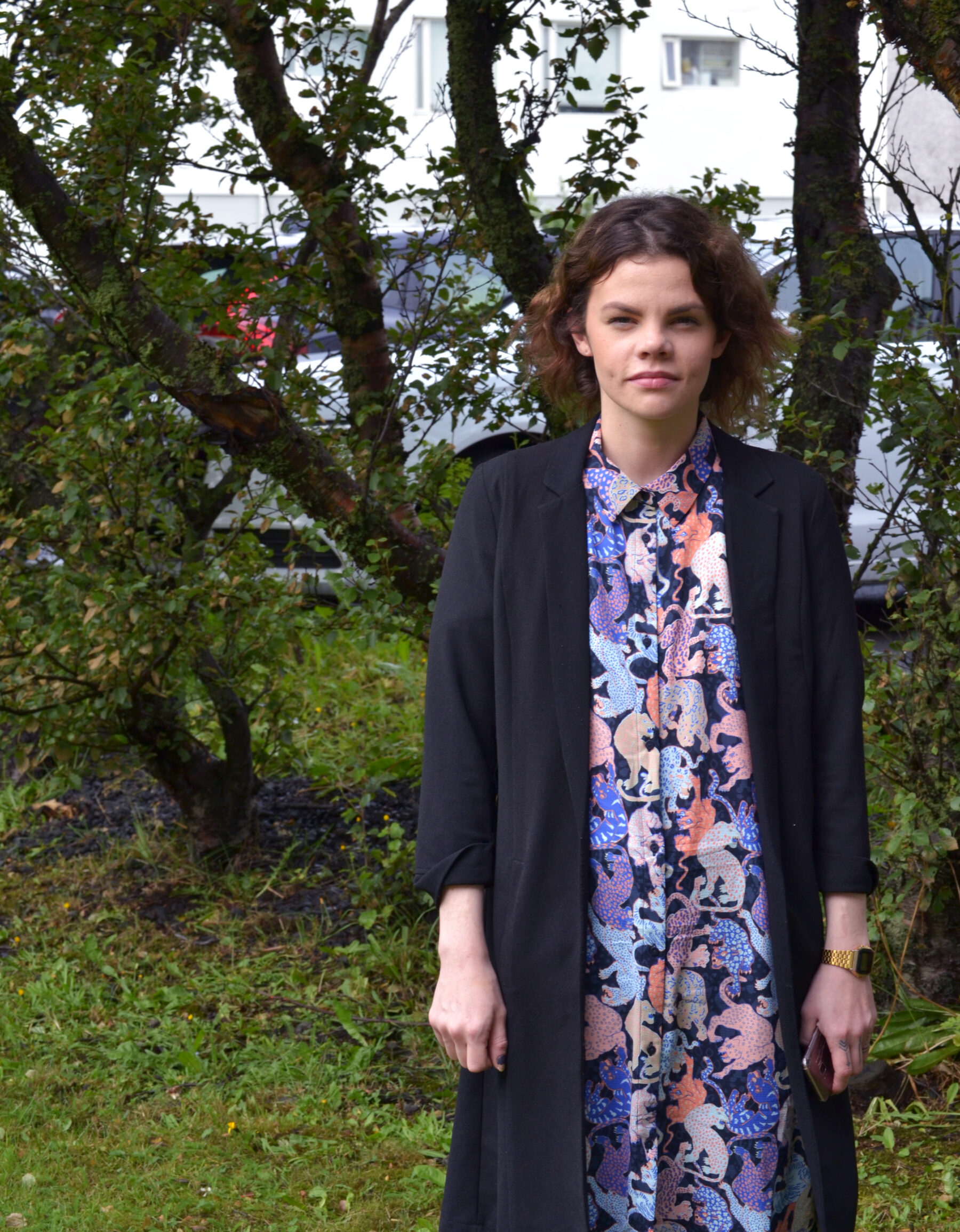

On Being Queer All the Time


Mikilvægi hinseginfræðslu á öllum stigum samfélagsins
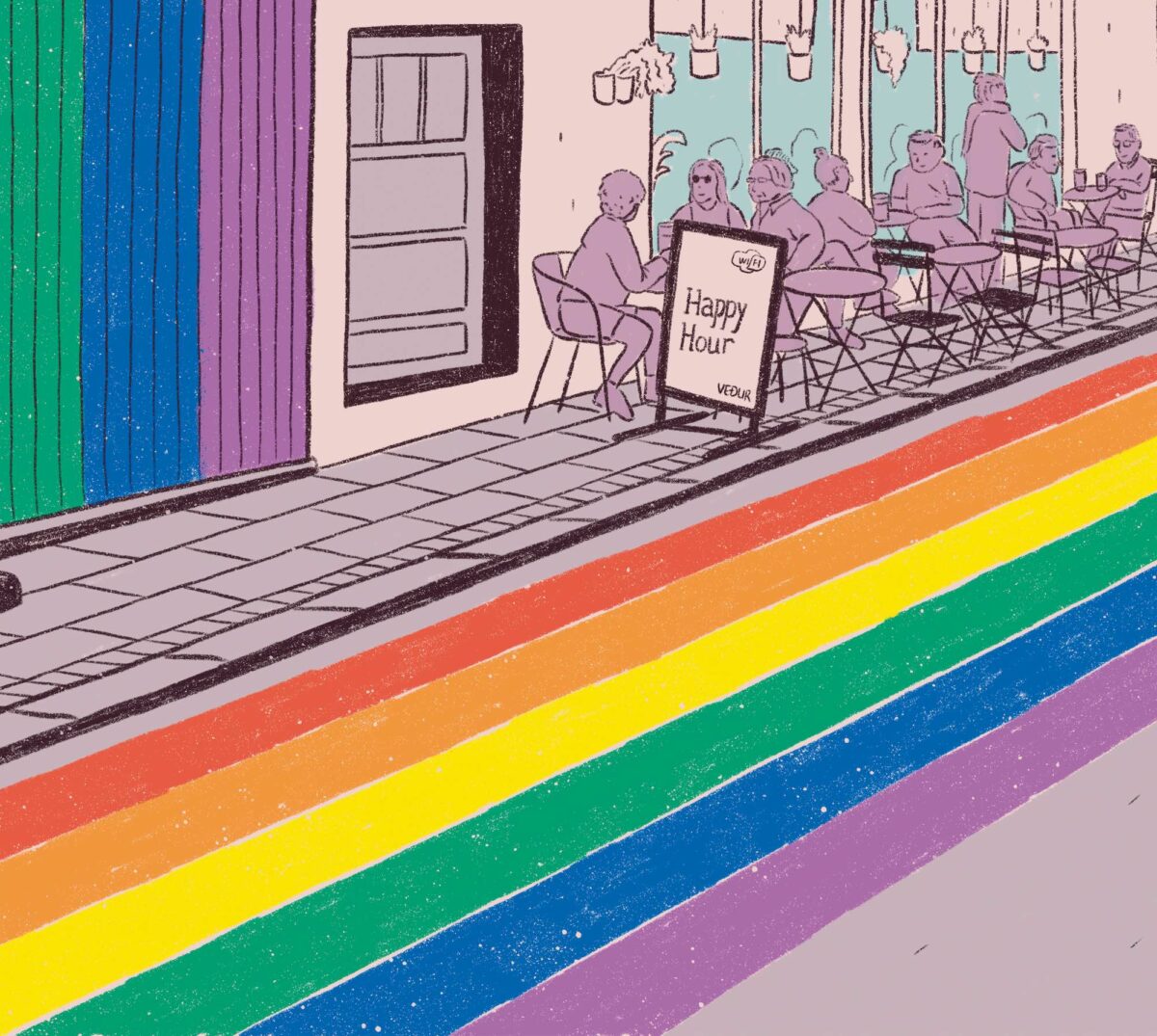
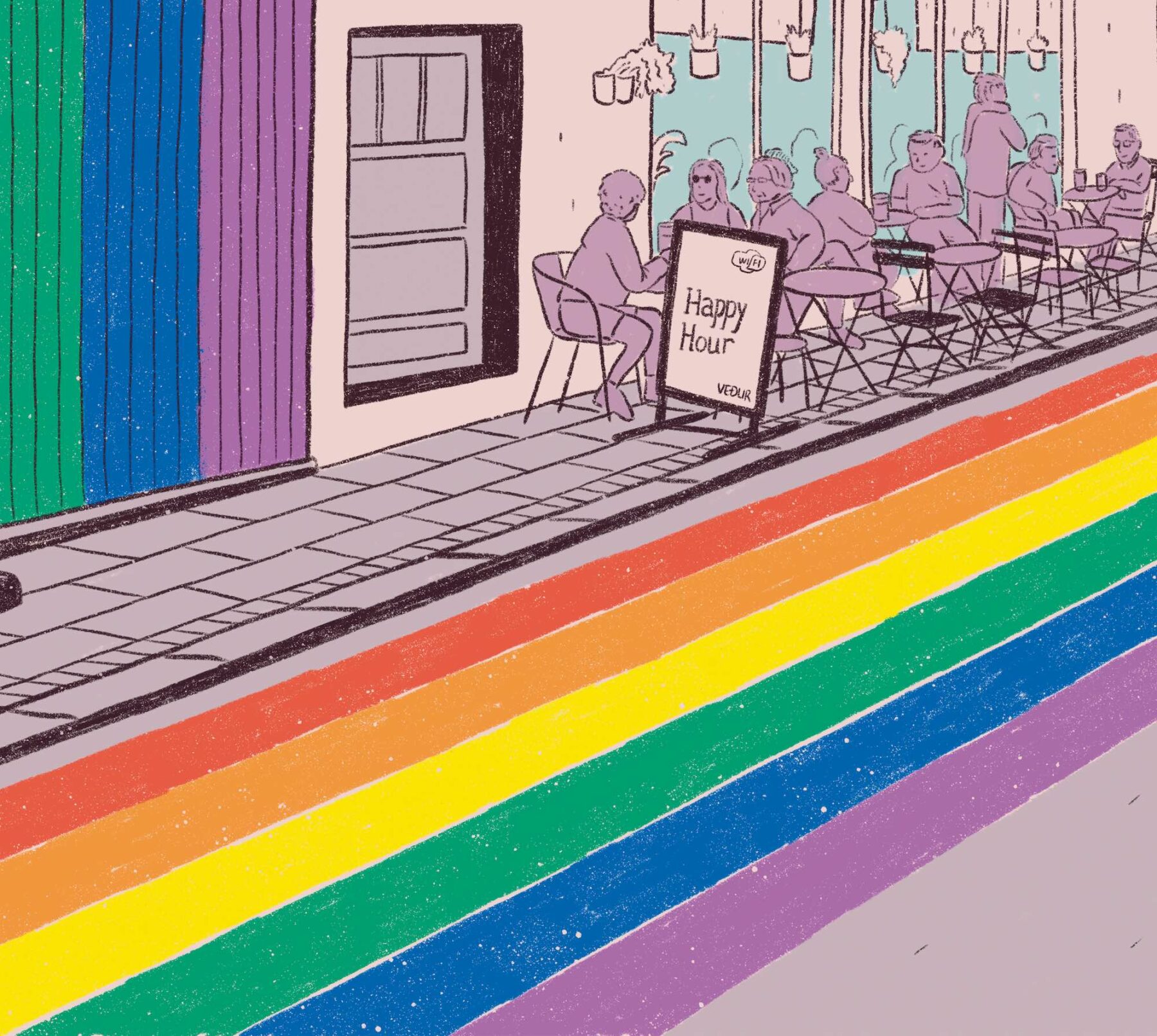
Read more about...